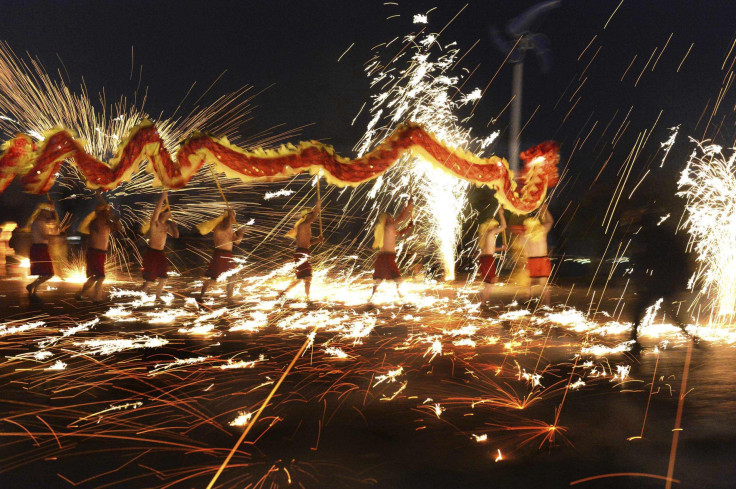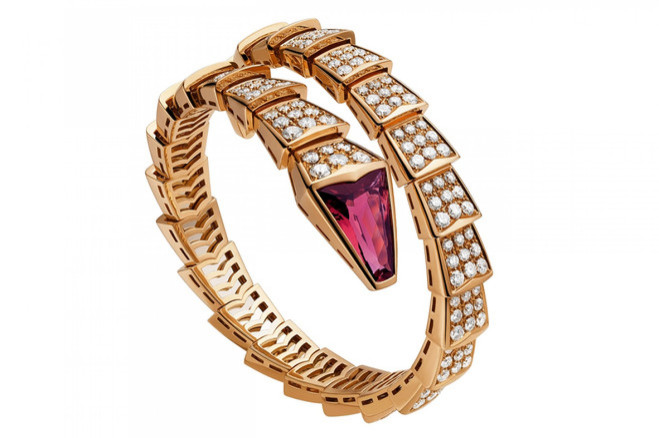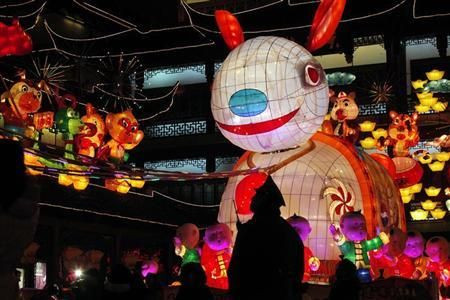Celine Dion, Snakes & Banned TV Ads: Chinese New Year's Odd Stories [PHOTOS]

This Sunday, Feb. 10, marks the first day of the Lunar Calendar, and the beginning of China’s biggest holiday season. As people scrambled to buy train tickets, find (fake) boyfriends to take home to their parents, and say farewell to their offices for a week by not having an office party, this year’s Chinese New Year news archive has built up into a pile of classically Chinese oddities.
Here are a few highlights of the events around the coming Year of the Snake:
Celine Dion’s Heart Continues to Go On … In China:
Every year, Chinese New Year celebrants gather for the CCTV Spring Festival Gala, similar to the venerable American program, Dick Clark’s New Year’s Rockin’ Eve. The show, which began in 1983, is the most-watched TV program in the nation, with a billion people estimated to be tuning in, and has quickly become part of family tradition when kicking off New Year festivities.
While this year’s Dick Clark’s Rockin’ Eve featured the music industry’s hottest artists, like Canadian YouTube star-turned-teen-sensation Justin Bieber, China’s New Year will be ushered in by a different Canadian import.

Nothing says Chinese New Year like Celine Dion! Dion will be reviving her world-famous hit, “My Heart Will Go On,” which was featured in the Oscar-winning movie "Titanic," for the occasion as well as performing a duet on a traditional Chinese folk tune, “Jasmine Flower,” with Chinese singer Song Zuiying.
Foreigners may be surprised by the seemingly random invitation for the Canadian vocal diva to perform 15 years after the song was released, but to the Chinese people, Dion is still fresh in their minds.
“It is not surprising that 'My Heart Will Go On' will be sung, as the 3D re-release of Titanic was a 2012 cultural phenomenon in China, raking in 975 million yuan ($156.45 million) at the box office,” the state-run newspaper People’s Daily reported.
Extravagant Gift Giving Frowned Upon
China’s infamous State Administration of Radio, Film and Television (SARFT), known for its nitpicking edits on Hollywood movies, like the 40-minute cut made for the Chinese release of blockbuster "Cloud Atlas," has taken its trimming talents to China’s television sets. This time it isn’t the naked figure of Rose in "Titanic," or the so-called political statements in "Men in Black II," that the SARFT disapproves of, but rather it is the notion of gift giving.
Under most circumstances, gift-giving during big holiday celebrations is considered customary and even encouraged. But according to a report by state-run Xinhua News Agency, this year that is not the case.
The SARFT has pulled all radio and TV advertising spots that suggest “gift giving” to deter people from buying expensive goods like watches, rare stamps, gold coins and fancy liquor (all traditional gifts during the New Year season). The advertisements that have been cut have "publicized incorrect values and helped create a bad social ethos,” Xinhua reported.
The government’s campaign against the harms of gift giving began in December of last year, where China’s top leadership rolled out new rules that called for a reduction in government officials’ spending on expensive goods and lavish banquets and encouraged frugality. That thrift has inspired even some privately owned companies to cut back on their holiday spending.
Another Year, Another Luxury
Not everyone has taken a liking to China’s new penny-pinching practices. Many luxury brands, like Burberry, Bulgari, Gucci and Johnnie Walker, have all come out with high-end items for the Lunar New Year. Burberry and Bulgari have released special edition goods that portray this year’s zodiac animal, the snake. Bulgari’s new Serpenti collection includes a diamond and rubellite bracelet that can wind around your wrist for $54,000. Burberry has launched a collection of handbags for the Chinese New Year, which use the auspicious color of red and have snakeskin detailing.

Even retailers in the U.S. and Europe are bracing themselves for the spending spree. Bergdorf Goodman, one of New York City’s famous upscale department stores, set up a Lunar New Year-themed window display and has added Mandarin-speaking staff on the sales floor to help out and hand out symbolic “hong bao,” or traditional red envelopes, to shoppers.
Last year, Rolls-Royce unveiled its “Year of the Dragon” Phantom car, which sets back buyers more than $1.3 million. The special edition vehicle had dragons emblazoned on almost every surface and featured LED “Year of the Dragon 2012” lights; it sold out in eight weeks.
This year, DARTZ Motorz Company, a Latvian manufacturer of armored vehicles, has introduced its first non-armored vehicle, the Black Snake, which is clearly geared to the Chinese market. The vehicle features a diamond-encrusted hood ornament and all the opulence, if not the good taste, one can think up. Though no price has been announced, estimates are it will cost well over $1 million.

Retailers, at least outside China, are hopeful that they will see similar success this year, in spite of the government push to cut down on spending.
“We’ll see a spike,” John Capizzi, general manager of Bergdorf Goodman, told the Wall Street Journal. “We know they’re coming.”
The Lucky Rabbit's Foot

The Chinese take the tradition of their 12 zodiac symbols very seriously and often follow strict rituals in order to achieve luck and success in accordance with their animals. A recent study by Wealth-X, a self-described global authority on "ultra-high net worth" individuals, has concluded that those born in the Year of the Rabbit have been succesfully harnessing their zodiac luck, ranking them as the sign with the most UHNW individuals in the world.
Rabbits represent the globe’s largest UHNW population at 9.5 percent. And on the other side of the spectrum, those born in the Year of the Dog represented the smallest percentage of the world’s UHNW population with 7.8 percent.
The extensive report also analyzed the different industries that various zodiac signs tended to gravitate to; the money-making Rabbit was seen the most in the manufacturing industry.
The report’s analysis showed that those born in the Year of the Snake are the most likely to get their wealth from inherited money.
The Chinese New Year has started to evolve in recent years, as the nation’s population begins to change and grow toward different goals and values. And though this year China is taking another step toward new traditions -- Celine Dion is the first international megastar to perform at a Gala -- it remains somehow, quintessentially Chinese.
© Copyright IBTimes 2024. All rights reserved.






















